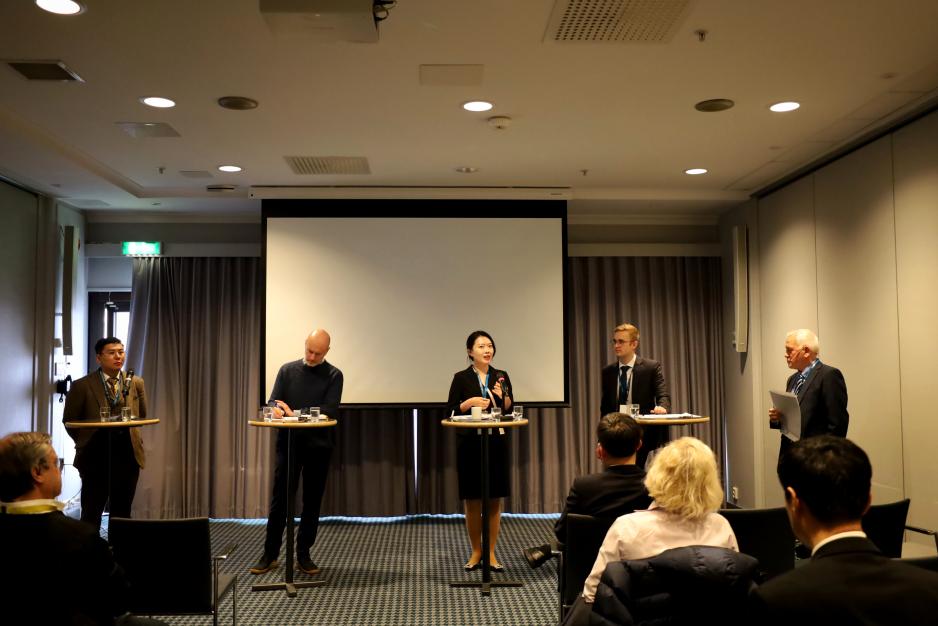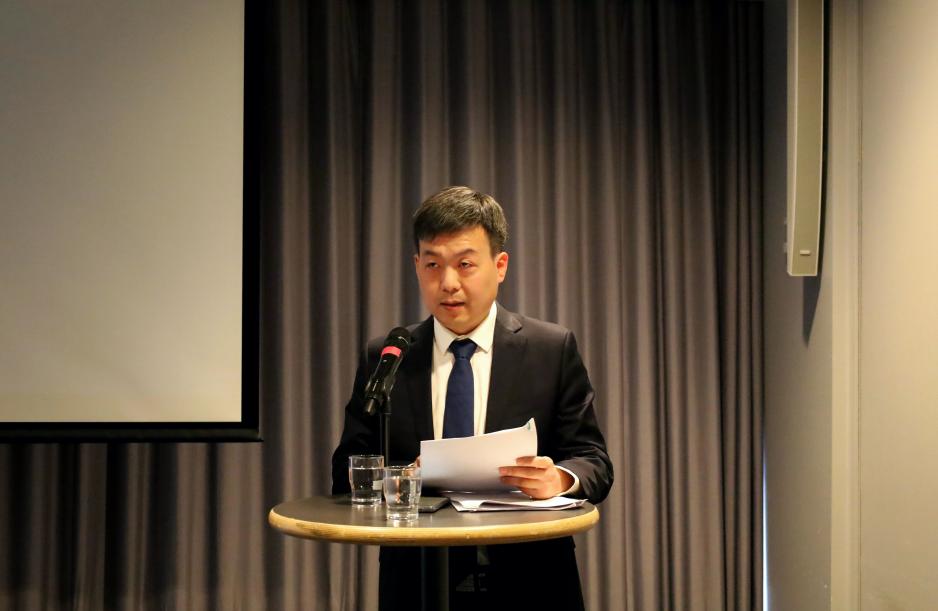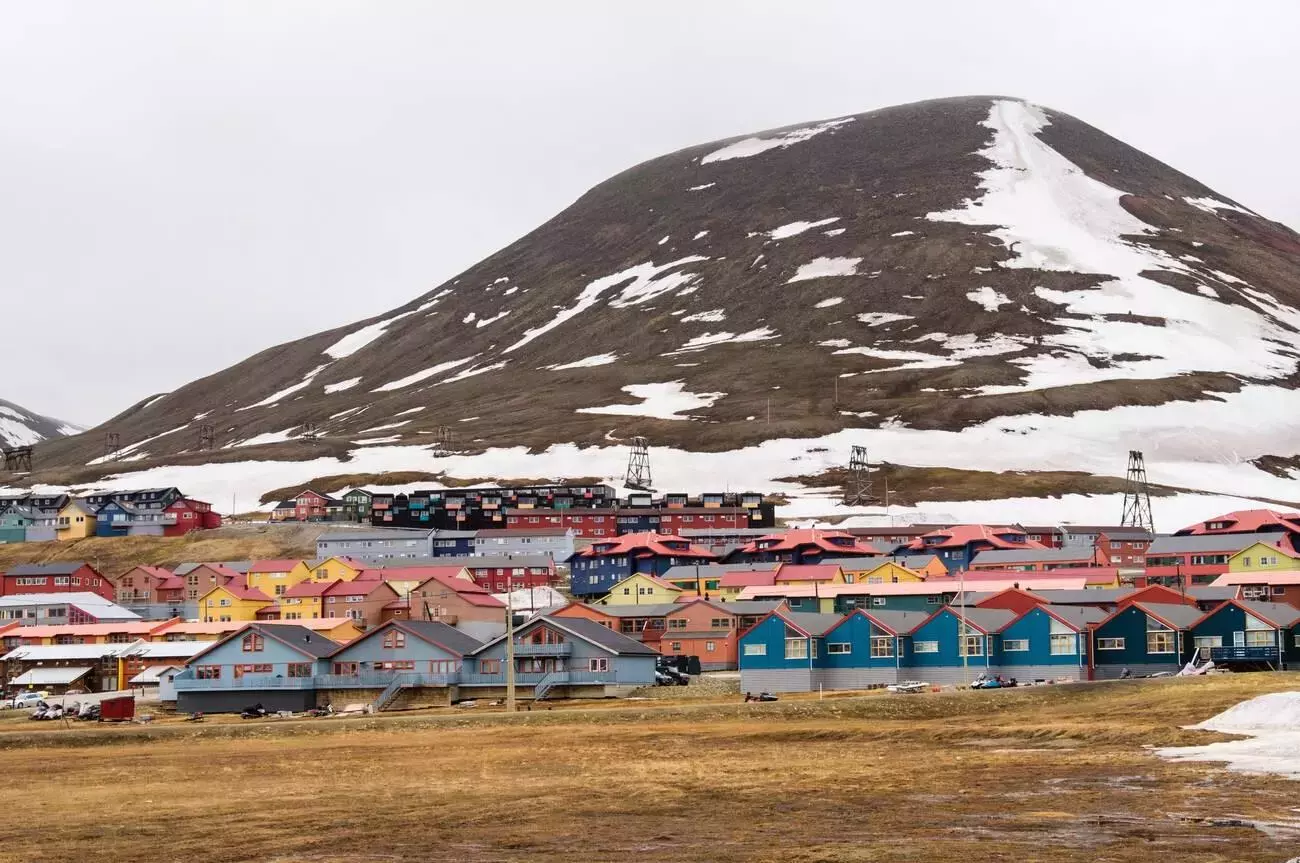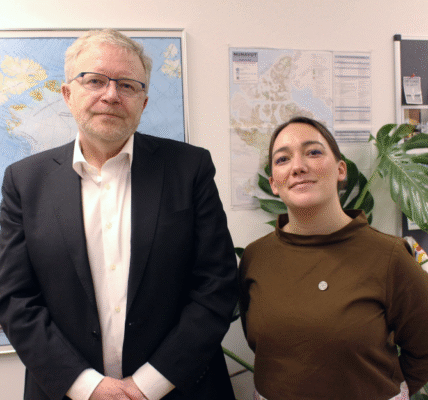“Promoting international cooperation in the Arctic is the way to go. Geopolitical competition and confrontation should not hinder international cooperation in the region. China is paying close attention to Norway taking over the chairship of the Arctic Council next month and appreciates Norwegian promises to stay in contact and cooperate with all the Arctic parties,” says Pan Zejun, Minister Counsellor at the Chinese Embassy in Norway, and continues:
“We hope that Norway can efficiently restore the council’s functions and cooperation between all parties. China is willing to play a constructive role in this.”
Furthermore, the Minister Counsellor implies that China, which has “good contact with Russia”, can support Norway as the council’s upcoming chair in the work to “coordinate all the Arctic nations”.
Zejun recently participated in a seminar about China in the Arctic during the High North Dialogue conference in Bodø.
Norway is scheduled to take over the chairship from Russia on the 11th of May and aims to preserve the Arctic Council as the most important international body for cooperation on Arctic issues. From a Norwegian perspective, this implies the involvement of Russia in one way or another. Moreover, Norway proposes cooperation with Russian researchers, probably primarily on climate and environmental data.
“Fully supports the council’s work”
The Chinese embassy in Norway gives High North News some supplementary statements about what role China will play in the Arctic Council.
“As an Arctic Council observer, China highly values the council’s positive role in Arctic affairs. We fully support the council’s work and we send experts to participate in its working groups and task forces. China hopes to work for the common good of all parties and further shared interests in the Arctic,” writes the embassy in an e-mail and continues:
“China’s policy goals in the Arctic are to understand, protect, develop, and participate in Arctic governance, so as to safeguard the common interests of all countries and the international community in the Arctic, as well as promote sustainable development of the region.”
Emphasizes dialogue and cooperation
When questioned about whether China can contribute to building bridges between Western Arctic countries and Russia in regard to the Arctic Council, the embassy answers the following:
“China leads an independent foreign policy for peace and makes decisions around our participation in international affairs based on the merits of the matter itself and our national interests. There are currently some divisions and obstacles within the Arctic cooperation. However, the more difficult the situation, the more important it is to maintain dialogue and cooperation. In the choice between cooperation and sanctions, we choose cooperation. China supports the participation of all Arctic stakeholders in Arctic governance for contributions to peace, stability, and sustainable development in the region.
As is well known, China and Russia cooperate on oil and gas extraction in the Russian Arctic, as well as the development of the Northern Sea Route – as part of China’s “Polar Silk Road” along the Northeast Passage. China has not condemned Russia’s invasion of Ukraine and is not participating in the sanctions against Moscow. In February, China presented a suggestion for a peace settlement in Ukraine which contained different elements.
A two-part Arctic – with Western states on the one side and Russia on the other – is not in China’s interest, states Ph.D. scholar Erdem Lamazhapov at the Fridtjof Nansen Institute (FNI) at the aforementioned seminar. He points to how China is developing the “Polar Silk Road” through the Russian Arctic with the aim of trading with Europe, and that a divided Arctic would limit the economic basis for this shipping corridor.

Does not want to step on any ‘Arctic toes’
In his seminar presentation, Minister Councellor Zejun also mapped out overarching guidelines for China’s Arctic policy:
“China’s participation in Arctic affairs mainly follows two principles: No overstepping and no absence. No overstepping means that China, as a non-Arctic state, does not want to interfere in Arctic states’ own affairs. We will act in the Arctic based on international law. Moreover, China will not be absent, but rather play an active and constructive role in addressing cross-regional and global issues in the Arctic.”
Furthermore, he points to the UN Charter, the UN Convention on the Law of the Sea, and the Svalbard Treaty as important legal frameworks for participation in Arctic governance and the execution of activities in the region.
With regard to China’s areas of interest in the Arctic, Zejun mostly talks about climate and environment research, as well as sustainable development. He praises Norway for supporting China’s research station on Svalbard – and also highlights Norway’s “special character” and independent activity in the international arena.
“We hope that Norway can continue to pursue its own unique policy and not follow the hardline policy of other powers,” says Zejun with an implicit reference to the US.




